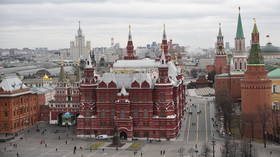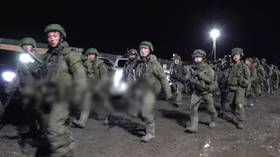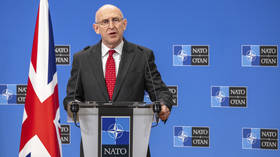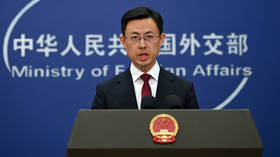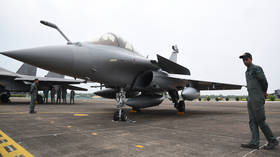Is Europe coming around to Putin’s Munich warning, or is this yet another false dawn?
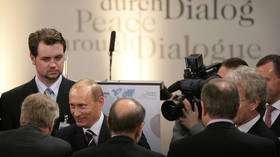
Russian President Vladimir Putin’s visit to France is being hailed as a revolutionary turn in the European Union’s policy toward Moscow. While that would be a step in the right direction, rumors of it might be greatly exaggerated.
Putin and French President Emmanuel Macron certainly seemed all smiles at their meeting in Bregancon on Monday, leading respected international commentator John Laughland to declare that “On every level, the West has now abandoned its earlier hostility to Putin and Russia.”
Also on rt.com Putin-Macron meeting heralds glorious summer after long winter of discontentThe meeting took place just a few days ahead of the G7 summit in France, to which Putin was not invited; Russia has been suspended from the group of industrialized nations since 2014, after the US and UK blamed it for the crisis in Ukraine.
None other than US President Donald Trump said on Tuesday that it would be “much more appropriate to have Russia” back in the G8 again, no doubt triggering every Russia “expert” on three continents.
It is certainly tempting to believe that Macron and Trump have somehow come to realize the wisdom of Putin’s speech at the 2007 Munich Security Conference, in which he warned about the perils of unipolarity, disdain for international law, and US attempts to impose its will on the rest of the world. After all, Trump himself has mused about better relations with Russia and advocated sovereignty over imperialism in his UN speeches.
Yet as the Russian leadership is keenly aware, Western politicians’ words are one thing, and deeds quite another. Even as he talked sovereignty, Trump has doubled down on trying to force Iran, North Korea and Venezuela into submission to US dictates, and his State Department continues to support “moderate rebels” (aka Al-Qaeda terrorists) in Syria. He has also ratcheted up sanctions against Russia started by his predecessor, perhaps pressured by his critics harping on the ‘Russiagate’ conspiracy for years.
Also on rt.com Trump says he could support Russia's return to G8Meanwhile, Macron just could not help himself, choosing to open the meeting by lecturing Putin about free speech and democracy. For those who haven’t been paying attention, that’s a bit rich coming from the president of a country where disenfranchised Yellow Vest demonstrators have been protesting against his policies for 40 weeks, at great risk to life and limb. The number of blinded or maimed opposition protesters in Moscow? Zero.
On Wednesday, the French president said that readmitting Russia to the G8 would be a “strategic error” and a sign of “weakness,” unless the situation in Ukraine was resolved first. This is hardly an “180-degree change” in French policy, as Laughland hoped.
Even if he were correct, how exactly would Paris go about that? France is not the master of her own destiny, beholden as she is to the EU and NATO. Both institutions have atrophied the strength and will of Western Europeans – by design, one might say – over the decades, turning them into ‘EUnuchs’ capable only of marching in lockstep with Washington.
Macron’s vision of a civilization extending “from Lisbon to Vladivostok” sounds grand, but the time for it was in 1991, when Russia was eager to embrace the West. A lot has changed since then. Now it is on Europe to prove itself worthy of such an alliance, and that will take a lot more than virtue-signaling and cheap talk.
So far, there is nothing to suggest that the Europeans are ready to change their ways. Nothing at all.
By Nebojsa Malic
Nebojsa Malic is a Serbian-American journalist and political commentator for RT America, based in Washington, DC.
Think your friends would be interested? Share this story!



